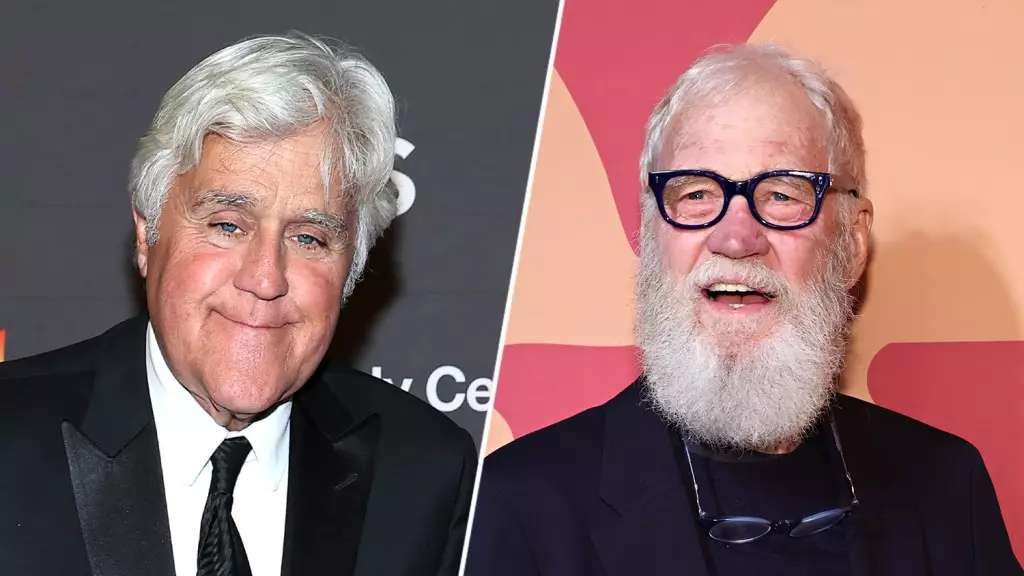In the world of late-night television, few relationships are as complex and compelling as that of Jay Leno and David Letterman. Now, more than three decades since their professional rivalry first took shape, Leno surprisingly expresses a willingness to reunite with his former adversary. Yet, this potential reconciliation is layered with nuance; Leno has openly acknowledged the “awkwardness” that characterized their past interactions. In a candid conversation during his appearance on *In Depth with Graham Bensinger*, Leno articulated a willingness to engage with Letterman again but stopped short of taking the initiative himself. This reluctance to instigate reflects not only Leno’s respect for the history they share but also an understanding of the intricacies involved in rekindling old friendships.
The Dynamics of Quirkiness
What makes Leno and Letterman’s dynamic particularly intriguing is their contrasting personalities. Leno describes Letterman, affectionately, as a “quirky guy.” This description, while seemingly benign, speaks volumes about their divergent styles—Leno’s affable and straightforward humor starkly contrasts with Letterman’s incisive, sometimes cryptic wit. Yet, this very quirkiness connects them in a way that transcends their current cultural landscapes. Leno’s admission that they share little in common beyond comedy is telling; it emphasizes that great comedy often springs from the differences that exist between individuals. Their awkward encounter at Letterman’s Malibu home, where Leno and fellow comedian Wil Shriner arrived unannounced, is a perfect encapsulation of these dissimilarities. What was intended as a light-hearted surprise turned into a testament to the challenges of navigating personal relationships within the entertainment sphere.
The Price of Rivalry
The rivalry between Leno and Letterman, initially fueled by their respective bids to succeed Johnny Carson, is an emblematic tale in television history. Leno’s decision to replace Carson in 1992 was seen as a culmination of their ongoing battle for late-night supremacy. Yet, beyond the accolades and ratings, this competition brought a slew of underlying tensions that complicated their professional rapport. Leno’s candid self-reflection about past missteps—his acknowledgment that he often ends up with “his hand bitten” when trying to mediate such situations—underscores the emotional toll this rivalry has exerted on their relationship. It showcases Leno’s growing maturity and introspection about the price of fame and competition.
The Future of Late Night
Reuniting now, as the late-night landscape continues to shift, could serve as an interesting commentary on the evolution of comedy and friendship. The irony of two former foes considering collaboration in an industry that thrives on conflict suggests the enduring power of reconciliation. In a world often dominated by divisive narratives, Leno’s openness to a reunion with Letterman represents a beacon of hope for personal and professional growth. Such a collaboration could reveal not just the results of their journeys, but also provide insights into how shared experiences may still bridge the gap created by rivalry and misunderstanding. As Leno aptly put it, “If they want to do something, I would do it,” signaling a willingness to embrace new opportunities despite past tensions. This statement alone invites viewers to consider the beauty of second chances in both personal and professional exchanges.

